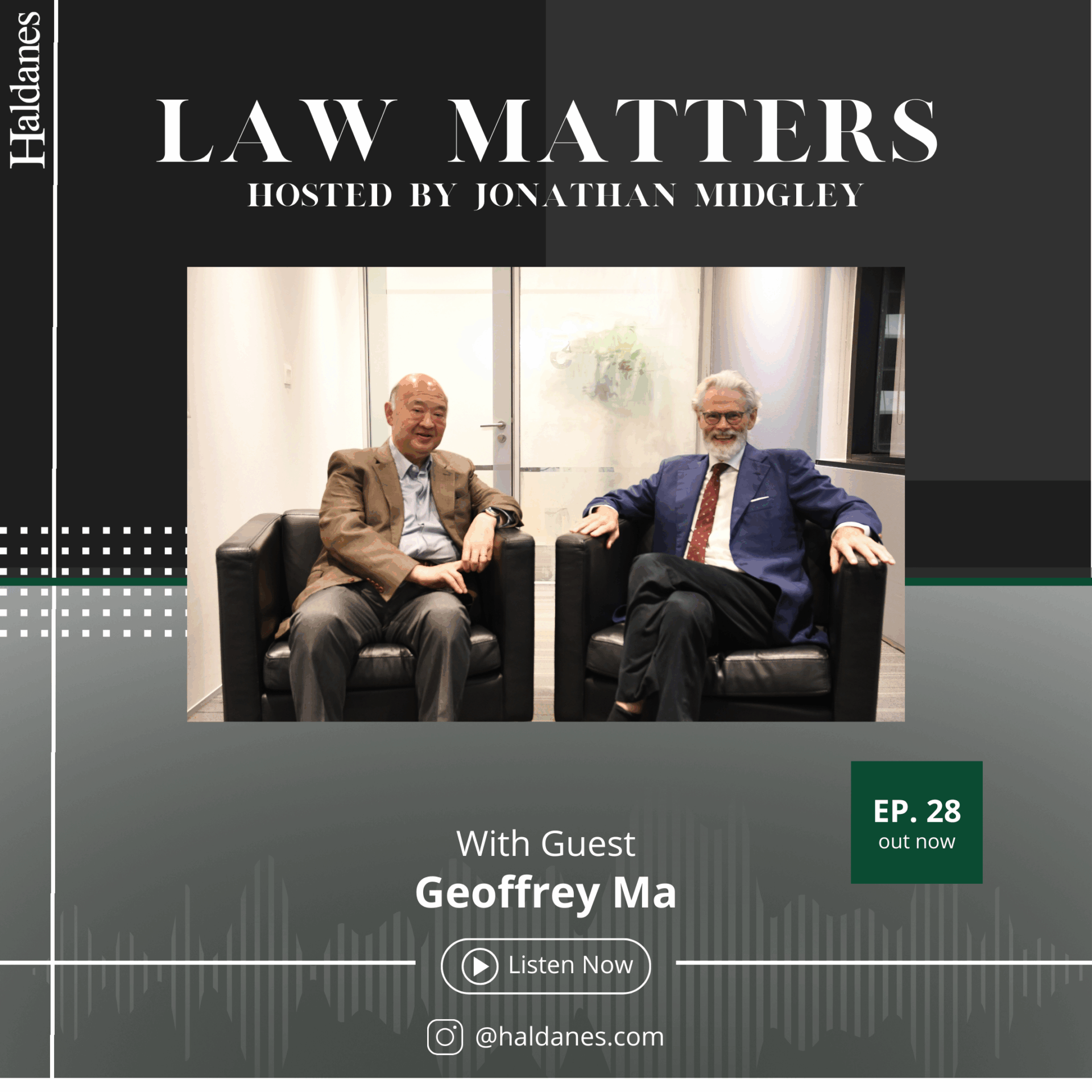Who Can Sue on Behalf of a Deceased Person? Key Lessons from a Recent Hong Kong Court Case

Prepared by Paul Lui (Partner), Eugene Huang (Associate Solicitor) and Winnie Tsang (Trainee Solicitor)
Navigating legal proceedings involving estates can be complex, especially when questions about who has the right to act or file claims arises.
A recent Hong Kong case in which Haldanes, alongside Mr. Michael Yin and Mr. Jeff Chan as Counsel, successfully defended an application on behalf of their client to be registered as shareholders of companies owned by an estate subject to ongoing disputes, sheds light on the importance of proper authority in legal actions involving deceased persons’ estates.
The Case in Focus
In Ching Mun Fong (also known as Ching Mun Fong (程孟芳) (Deceased) & Anor v Hock Kim Thye (Machinery) Ltd (福金泰機械有限公司) & Ors [2025] 2 HKLRD 577), the court examined whether individuals representing an estate had the proper authority to initiate legal proceedings on behalf of the deceased.
The Applicants were administrators of the Deceased’s estate appointed by the Courts in Singapore. The estate comprises shares in multiple Hong Kong companies (the “Companies”).
The Applicants sought orders that, amongst other things, they be registered as shareholders of the Companies in place of the Deceased. Importantly, at the time of the commencement of these proceedings, the Applicants had not obtained the Letters of Administration of the Deceased’s estate from the Hong Kong Courts.
The intervener, a director of the Companies, applied to join the proceedings to oppose the applications on the grounds the Applicants did not have proper locus to commence the same.
Core Principles Reinforced
In this case, the Court of First Instance reaffirmed three significant principles:
- Any legal proceedings commenced by a plaintiff purportedly on behalf of an intestate estate without having obtained a Letters of Administration first will be struck out as a nullity.
- The fact the plaintiff has obtained the grant after commencement of proceedings or a grant from other jurisdictions does not operate retrospectively to cure the nullity.
- The procedure for applying for a “carry on” order under O.15 r. 6A(4) does not have the effect of eliminating the above common law principles.
Relevant Law
The English case of Ingall v Moran [1944] KB 160 has established a longstanding principle that, where a person has died intestate, proceedings commenced by a claimant on behalf of the estate are a nullity unless brought by an administrator who has been granted Letters of Administration.
This is because unlike executors under Wills, the administrators of intestate estates could only derive their power and title over the estate from the Letters of Administration.
On the other hand, Order 15 rules 6A (3) and (4), when read together, seem to have provided for a procedure allowing persons to apply to the court for an order to “carry on” the conduct of proceedings purportedly commenced by a deceased plaintiff.
One of the central issues before the Court in the present case was whether Order 15 rules 6A could be construed as entitling persons to commence legal proceedings in the name of intestate deceased persons without having first obtained Letters of Administration, thereby abolishing the rule in Ingall v Moran which would have meant no legal proceedings could be commenced on behalf of an intestate estate unless and until a grant of Letters of Administration had been obtained.
Key Takeaways for Estate Administrators
Having heard detailed arguments between the parties, the Court agreed with the Intervener that Order 15 rule 6A, being a subsidiary set of rules governing litigation procedure, cannot alter substantive laws of rights, which is a matter for the legislature to decide.
Also, there are valid reasons why the rule in Ingall v Moran should not be abolished, for instance the benefit in ensuring the estate is represented by the most appropriate person and avoiding duplication of proceedings.
In the present case, since the Applicants had not obtained the Letters of Administration of the Deceased’s estate from the Hong Kong Court at the time of commencement of proceedings, the proceedings were a nullity and must be struck out.
Although the Applicants had a grant from a foreign court and obtained the Hong Kong grant subsequently, this does not have the retrospective effect of curing the nullity.
As a result, the Applicants’ claims were dismissed with costs to the Intervener.
The Court’s decision serves as an important clarification of the principles governing whether and when a person may commence legal proceedings on behalf of deceased persons, and a reminder that proper authority must be obtained prior to the commencement of proceedings. Otherwise, significant time and costs may be wasted.
The leading partner in this case is Paul Lui, assisted by Associate Eugene Huang.
Please feel free to reach out to our team should you have any enquiries regarding civil litigation and wills and probate. Our team has extensive experience in handling both contentious and non-contentious inheritance matters involving estates with assets in multiple jurisdictions.
Disclaimer: This article is for reference only. Nothing herein shall be construed as legal advice to any person. Haldanes shall not be held liable for any loss and/or damage incurred by any person acting as a result of the materials contained in this article.


